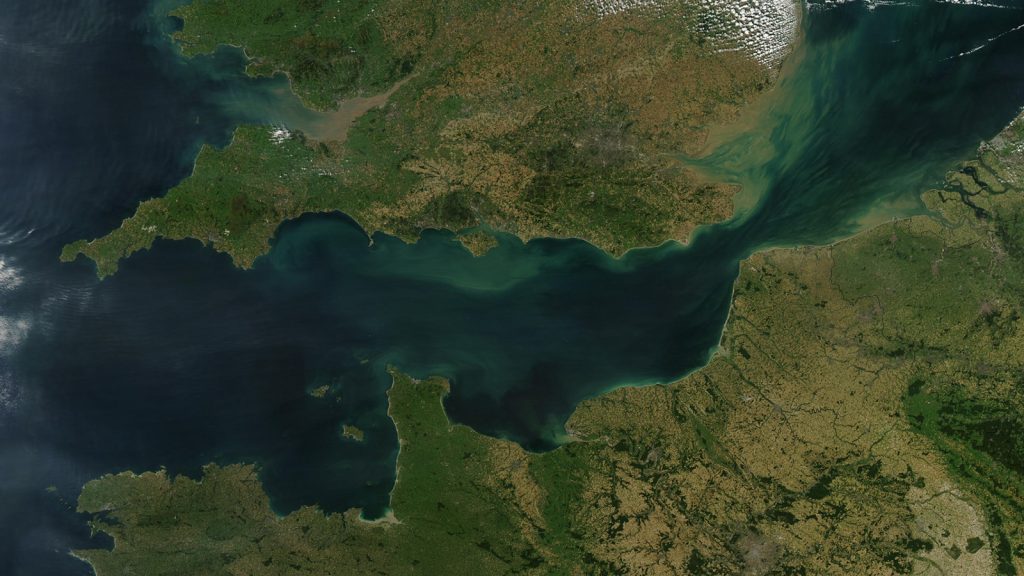Tips for Crossing the English Channel
Tips for crossing the English Channel are always a good read if this journey is on your bucket list this year. If you’ve never crossed the Channel on your own, there are plenty details you should consider. Learn more about how to safely sail from England to France, or vice versa.
How Hard Is It to Cross the English Channel by Boat?
Let’s start by understanding how things look from a geographical standpoint. The Channel separates Northern France from Southern England. It also connects the Northern Sea and the Atlantic. It measures 560 km in length and between 240 km and 33 km in width. The channel’s average depth is 120 m. Between the two major connection points, Dover and Calais, the depth decreases to approximately 45m.
For a skilled sailor with a robust vessel, crossing the Channel should not be particularly challenging. However, if this is not you, think twice before doing it. If it’s your first time, you’d better be accompanied by a more experienced sailor.
This is an extremely busy area with ferries and ships coming and going all year round. If you sail in a small boat, just getting close to them might put you in danger. Therefore, you should pick a safe passage in order to avoid the ferries and cargo ships. Also, mind your speed and don’t try to go faster than freighters, some sail at more than 18kn.
The best time to complete your journey is during daylight since it is always more complicated to spot the harbor and moor in the dark.
Along the coast, tidal streams can also be tricky, especially on the coast of Normandy. Before your departure, check the weather forecast so that you’ll know what to expect.
Never neglect the necessity of a complete safety equipment. Your vessel should be equipped with life jackets, courtesy flags, binoculars, pills for seasickness, snacks, water. Also, remember that this sea is far different from the mild Mediterranean. If you fall into the water, the risk of hypothermia might be higher than that of drowning.
Perform all the necessary checks to make sure your boat functions properly before leaving.
What Documents Do I Need?
Let’s start by understanding how things look from a geographical standpoint. The English Channel separates Northern France from Southern England. It also connects the Northern Sea and the Atlantic. It measures 560 km in length and between 240 km and 33 km in width. The channel’s average depth is 120 m. Between the two major connection points, Dover and Calais, the depth decreases to approximately 45m.
• Passport/ID/Visa
If you sail from the UK to France
Brexit has become once again one of the hottest topics in the news. It is yet unclear what the status of UK citizens will be after Britain actually leaves the EU. However, until things are clarified, they are still considered members of the EU. Consequently, they are not required to have a special passport to cross the channel to France. So, if you’re coming from Great Britain to Europe, you’ll just need your ID.
If you sail from France to the UK
Similarly, if you’re a European citizen, you don’t need a passport or visa to get to the UK, at least not yet.
If you’re travelling from a non-EU country, you should check with your embassy or consulate and see what rules apply in your case. Typically, you need a passport that was issued at some time in the past 10 years. Also, your passport should be valid for a minimum of 3 months after the day you plan to depart from the EU.
Additional requirements such as visas or invitation letters might also be necessary. So, you should do some prior research. As you know, obtaining travel permits can be a pretty lengthy process.
• Health Insurance
Especially if you plan to spend some time outside your country, it’s a good idea to get a health insurance. Nowadays, the EHIC (European Health Insurance Card) is quite popular. This card guarantees medical services in case of emergency. You can get one easily, by applying online.
• Boat Insurance
Just like your car, your boat also needs an insurance, especially if you intend to travel the world with it. The requirements are different across EU countries. However, if you’re planning to go on a long journey, you should get an insurance. Most European states will check your insurance once you cross their territory.
• Evidence of boat registration
When you pass the border between states, by car, you need to show a proof of registration. Similarly, your boat has to be accounted for.
For example, if the boat is UK-registered and you’re sailing outside the UK territorial water, you need the registration document. The original document should be kept on board as this is the only valid one. The proof of vessel ownership is also good to have on board.
• Radio License
If your vessel has radio equipment you’re currently using, you’ll need it licensed. This rule is available for all UK-registered boats sailing abroad. The radio license is considered a legal obligation. If you’re not based in the UK, the port authorities in your country should be able to provide you more information on this.
All in all, there are plenty things to consider before crossing the English Channel on your own. Take your time to plan this trip, especially if it’s a milestone in your sailing experience.
Finally, don’t forget we’re always here to help you book a berth in the following countries:

